I’ve been strangely enamored with Vision’s record since picking it up at a flea market back around 1998 or so. Released during Lexington’s transitional period when the true garage and soul bands were lost to time (or in some cases Vietnam) but prior to the full on southern rock onslaught – it is unique. Every few years I would try again to track these guys down and finally found what I was seeking – except a band photo! [2022 Shawn Chambers / Lexingtunes]
The band Vision was a short-lived venture, but its members would each go on to leave a large musical footprint on the Central Kentucky music scene. The band’s origin can be traced directly to James Malicote and the Bounty Hunters, which featured leader / vocalist James alongside brother Lonnie (bass), drummer Jimmy Klug, and Billy McDaniel on guitar. With a catalog of country and rock, the Bounty Hunters stayed on the wilder side of performing and were a major player on the Winchester music scene in 1971 with multiple appearances each week at the infamous Pat’s Silo.

Walk down a Winchester street and ask any old-timer about the Silo. The reputation was well-earned with stabbings common and flavored by the occasional shooting. The Bounty Hunters had a great following there and likely would have continued, but in April of 1972 the proprietor Martha “Pat” Manis drove over to the Red River Gorge one evening with a bottle of booze and another of pills… The Silo’s status was understandably on hold with her death and it seems that (if not prior) it would have been no later than this time that the boys shifted to a full-time gig at a nearly equally notorious Lexington venue – The Lime House.
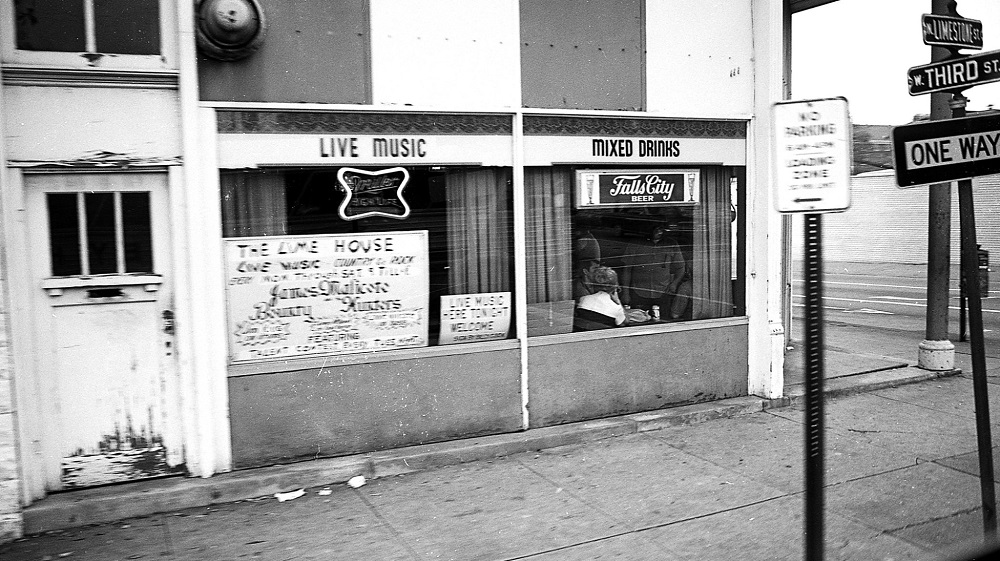
Booked in for as many as six nights a week, the Bounty Hunters brand of country-rock was just as popular at the rough-and-tumble Lexington club as it had been in Winchester. Of course, there was still plenty of fighting and Lonnie did have his ’55 Chevy stolen off the street during one show…but the boys had a new home.
Change was to come. The Malicote family was very involved in the horse business and James felt the pull to slow down from the hectic band schedule and devote more time to the farm. It seems to be around mid 1972 when the last bounty was caught and a new Vision emerged with his departure.
The remaining trio of L. Malicote, Jimmy Klug, and Billy McDaniel would be joined by an older hotshot upright piano player in Carroll Smithers and a new vocalist in Rodney Waugh. Each brought something unique to the table.
Lonnie Malicote (b. 1947) was raised in Fayette County and with the influence of his parents (who could both play clawhammer style banjo) got an early start in music. His first really serious venture was playing an improvised bass (a regular guitar with heavy strings) for Dave Wethington at George’s Place, which was a popular venue just south of Paris. He would have been an obvious choice for bass when brother James had decided to assemble a group.
Lawrence James Klug (b. 1949) had rhythm in the blood it seemed. Although his parents divorced at a young age, Jimmy’s dad was rumored to have been a drummer and the youngster seemed to fall into his passion early in life:
Well, I was always beating around on pots and pans and finally I got a set of bongos. Later, when I got my first set of drums I had one Johnny Rivers LP to work it all out with…(laughs)…I wanted to be a rock n’ roll drummer but all the bands seemed to have a drummer already so I found work as a country drummer and came to love it.
As a friend of Lonnie’s his entry into the Bounty Hunters had been an easy one and Klug was happy to carry on with the new band.
Billy McDaniel was the brother of Frank McDaniel who local music deep divers will remember as a guitarist on Tommy Baldwin’s “In My Mansion Over There” and C.P. Hazelwood’s “3-D Woman.” Clearly thanks to his brother, Billy would have been around guitars from an early age and came to be a very proficient player. Surprisingly, he was also a member of the Lexington police force.
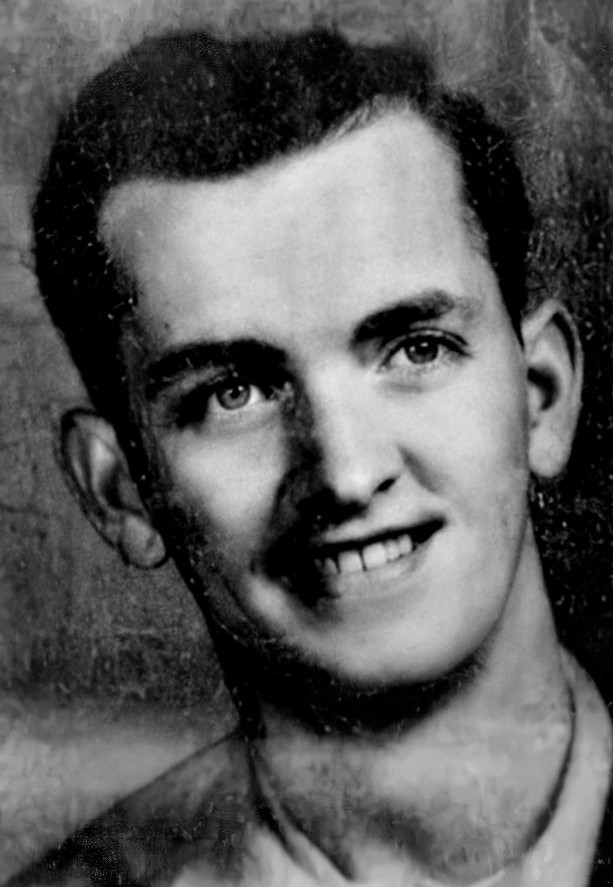
The landing of veteran Carroll Smithers (b. 1932) was a stroke of luck. The much older Smithers was a true musical prodigy having started piano at age 8 and recruited by brother Herschel “Cowboy” Smithers into his western swing band at 15. After a stint in the Korean War, he traveled to the Detroit area for numerous radio and TV appearance. In the late 50s he was dubbed the “Rock N Roll Sensation” at various appearances in Nebraska and the Midwest. He ultimately returned to the Lexington area permanently and was a staple of the night club circuit prior to Vision.
Taking the lead vocal spot vacated by James Malicote was Douglas Thomas “Rodney” Waugh (b. 1942) from nearby Paris, Kentucky. In addition to vocals, Waugh was also a guitarist and his love of oldies coupled with his soft delivery broadened the song catalog for the band.
The impetus behind the band’s single on the Look label appears to be Bill Snowden. Snowden had hustle and a yen to manage a band and he began frequenting area clubs for just the right opportunity. Nothing was terribly official, but one day he was just there. A rookie of sorts, Snowden used his connections and some unorthodox promotion such as recording raw practice sessions then playing them on a DJ slot he secured likely at WMST in Mt Sterling. By the time Cardinal Sound opened for business in Lexington, Snowden had already come to a working agreement with the studio.
The session was short and sweet with two original songs courtesy of Jimmy Klug (and a co-writing credit claimed by Snowden). The resultant pressing on the obscure Look label boasted a PO Box address from Mt Sterling and to date only one other single has ever surfaced on the label. Band memories are fuzzy, but again, attribute it to Snowden and it was likely his own baby.
Stylistically, Vision is hard to pigeon hole with a sound on record not necessarily indicative of their live performance. Lexington in the early 70s was not quite under the full influence of Southern Rock as perfected shortly thereafter by so many of the Eastern Kentucky bands that flooded the local venues. But even prior, the rough and rowdy venues would call for the usual bar band mix of rock and country with little time for originals.
On record, though, the band could pursue some lighter radio-friendly vibes. The A-side “Walking Down the Highway” is a redemptive tune of a wanderer realizing his mistake in the love he left behind and has an expected ‘feel good’ ending. The smooth delivery weaves a tale that could easily be autobiographical but Klug admits “it just sorta come to me.”
Time has been kind to the B-side “Girl, We Really Done It This Time.” Waugh’s vocals soar alongside the still unknown female backup singers. The simple guitar and Klug’s soft rim clicks add to the dreamy feel of the track.
Klug and Snowden racked up some miles doing some promotional work for the release, which included a trip to Nashville, Tennessee, for a radio spot with famed country music DJ Ralph Emery. Otherwise, details are scant about more regional promotion / distribution but the record seldom surfaces in the area.
No local band could count on record sales to pay the bills and Vision was no exception. The boys returned to their rigorous five to six nights a week schedule, but the band would end soon after.
Lonnie Malicote wanted to spend more time working with his family on horses, but continued to play music with Rodney Waugh at Tradewinds on Lane Allen Road – sometimes with Jimmy sitting in as well. Lonnie also played in a family band with brother James and this was likely an early version of the Bluegrass Thoroughbreds – a band that James has kept going since the mid-1970s. Lonnie more-or-less quit music around 1979, but came back in 1983 to release a gospel 45 for Winchester’s RCM label that included his original composition “A Song of Moses & the Lamb.”
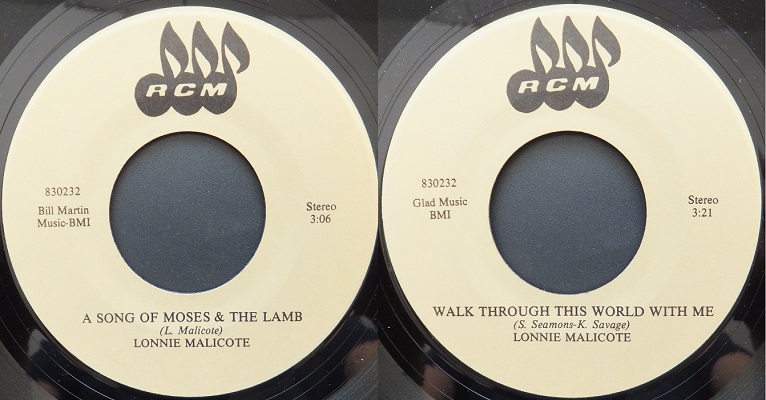
Klug seemed to have a knack for being behind his kit at just the right time for things to happen. He would find work backing J.D. Crowe in the early years as the bluegrass legend transitioned to electrified instrumentation and a new musical road that pointed straight to the New South. Having traveled with J.D. to some large festivals during the warmer months, Klug would stay for an ongoing engagement in 1973 at the Holiday Inn in Lexington as the temperatures dipped over the winter.
After Crowe, Jimmy shifted right into a new band and was present for the genesis of Ivan Shaw and the Country Sounds (who would release a Lemco 45 in 1974 and an LP for RCM in 1979). After a very long stint at the Congress Inn, Klug ultimately left the band along with bassist Kevin Slucher and would form Uncle Lijah (a band that also featured ex-M’pax guitarist Lee Gabbard). Uncle Lijah was the de-facto house band at Cowboys for many years and self-released an LP with the club’s cooperation in 1983. Mostly a covers album, it does include some originals from the pen of Jimmy Klug though he wasn’t properly credited on the jacket or label.
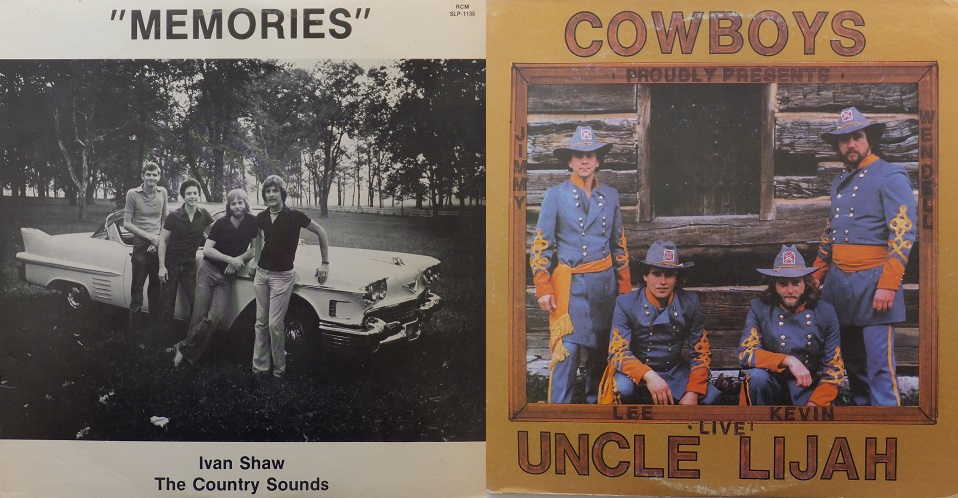
Billy McDaniel was unable to be reached, but is believed to still be in the Lexington area after retiring from his long career in law enforcement.
Carroll Smithers kept playing with various bands and solo around the region. He is certainly remembered by many veterans for his volunteer work and entertainment of patients at the Lexington VA Hospital. His 50+ year musical career was silenced by his death in 1996 at age 64.
Rodney Waugh passed away in 2013 at age 71. He had remained in the Paris area where he worked as a stonemason and continued to play music and offered lessons to budding musicians in Bourbon County.
With the recent interest in yacht rock and other softer sounds of the 70s, it is little surprise that the Vision single would stay under-the-radar much longer. Indeed, in 2022 Germany’s Tramp Records included “Girl We Really Done It This Time” on Volume 8 of their ongoing Praise Poems anthology series, which will help introduce Vision to the next generation.
Discography:
Look 479 Walking Down the Highway / Girl, We Really Done It This Time 1972*
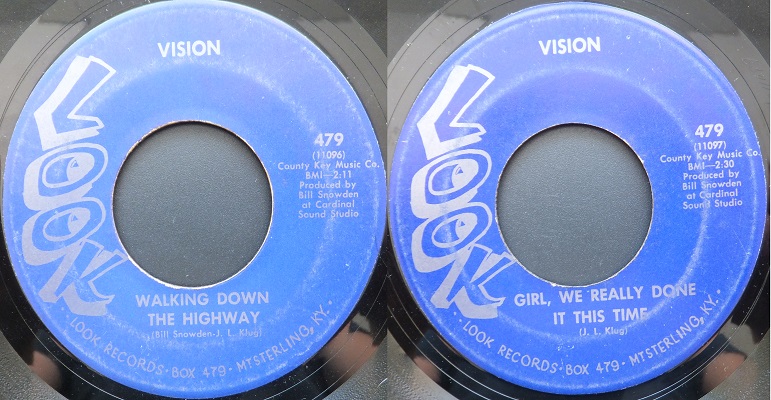
*pressed by Southern Plastics, the matrix numbers of this era can be deceptive but record seems to surely be late 1972 with an outside chance of being early 1973. Note also that Jimmy’s initials were reversed on the songwriting credit from ‘L.J.’ to ‘J.L.’